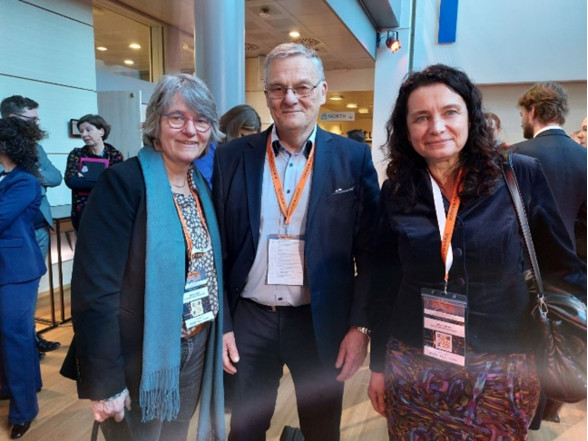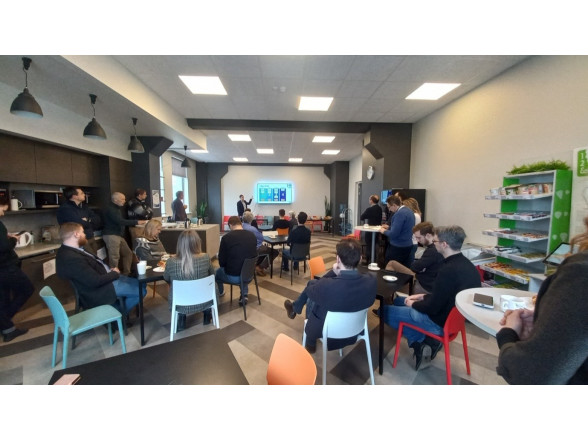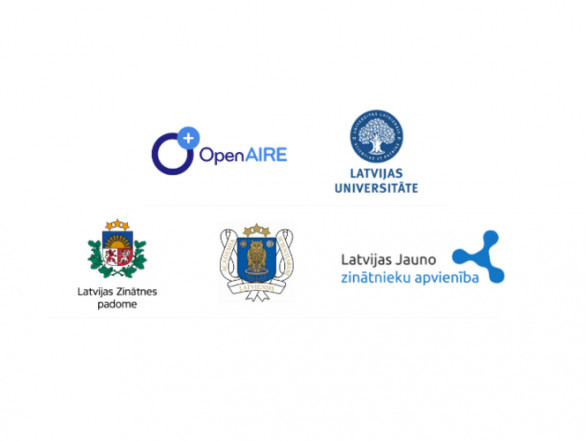On February 7, 2023, ISSP UL’s Deputy Director for Science Dr.habil.phys. Andris Šternbergs and the ISSP UL Development Department coach, Edīte Kalniņa, attended a public network hybrid conference, "Sustainable horizons: Does our future depend on science?" in Brussels.
The main objective of participation was to make new connections by continuing the conversation started during the sessions and to get new ideas and insights for future cooperation projects in the EU’s flagship €95.5 billion R&I program - Horizon Europe.
During the one-day conference, the Science|Business Network and international R&I leaders convened for a unique set of debates: first, to explore the science and tech agendas to bring planetary sustainability goals within reach, and second, to address some of the fundamental tensions at the interface between the two, including:
- Which role for R&I in pursuit of the 2030 UN Sustainable Development Goals?
- Will Horizon Europe make a tangible difference, and how will today’s crises influence the rest of its strategic agenda?
- Are the green and digital transitions truly compatible, and how to manage the potential risks and unintended consequences of pursuing both in parallel?
- Where will boundary lines be drawn between international cooperation and national interests in sustainability-related domains, not least around technology sovereignty?
- Can foresight help R&I decision-makers agree on what to prioritize and how to align investment with longer-term impacts and outcomes?
The ISSP UL representatives obtained valuable information and contacts for further development, such as Toomas Asser, Rector, University of Tartu, member of the Estonian Academy of Sciences and Estonian Research & Development Council, vice-chair of The Guild of European Research-Intensive Universities and president of the Universities Estonia, who in his speech highlighted the future expanding role of scientific communication, the role of science in general in tackling fake news. Great future potential in science communication education &training development.
Also, Sergio Bertolucci, a Professor at the University of Bologna & Former Scientific Director, a particle physicist at CERN, the former vice president and a member of the board of the Italian National Institute of Nuclear Physics. The key thought taken from his presentation was that technologies’ role, purpose and objectives should be re-evaluated and restarted.
Linda Doyle, Rector and Provost of Trinity College Dublin, the first woman to hold the position since the College’s foundation in 1592. Professor of engineering and the arts at Trinity, her research focused on wireless communications, spectrum management and creative arts practices. Linda Doyle is an active advocate for women in STEM. In her speech, she emphasized that the world is moving in the opposite direction than UN SDG and that science should interfere to prevent this.
Anders Söderholm, President of the KTH Royal Institute of Technology. In his speech, he discussed developing lifelong learning opportunities for scientists and science managers focusing on TNA and mechanisms combining work with learning and innovative methodologies. Anders Söderholm discussed the changing identity of scientists (scientist as a narrow field expert, a stranger, a monk).
Other valuable thoughts came from Ole Petter Ottersen, the President of Karolinska Institute, who also serves as a board member of the African Population and Health Research Center in Nairobi and as panel leader for European Research Council synergy grants, neuroscientist, physician and academic. His speech was devoted to science communication as the most important focus.



